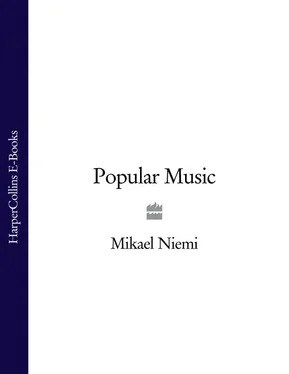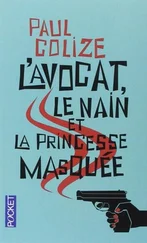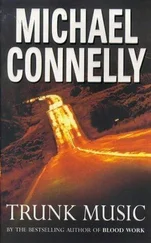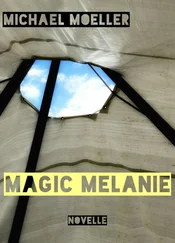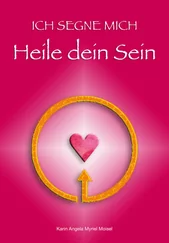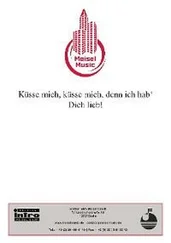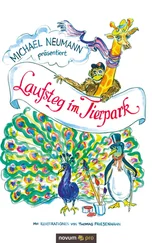Popular Music
Mikael Niemi

Cover Page
Title Page Popular Music Mikael Niemi
Maps Maps
Prologue
Chapter 1
Chapter 2
Chapter 3
Chapter 4
Chapter 5
Chapter 6
Chapter 7
Chapter 8
Chapter 9
Chapter 10
Chapter 11
Chapter 12
Chapter 13
Chapter 14
Chapter 15
Chapter 16
Chapter 17
Chapter 18
Chapter 19
Chapter 20
Epilogue
Copyright
About the Publisher
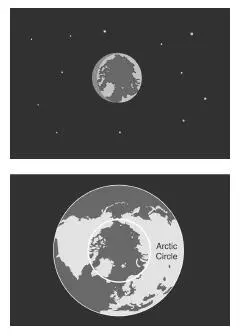
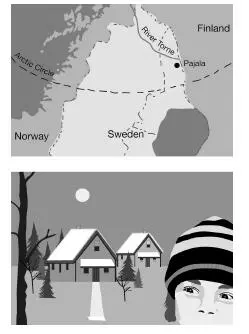
The narrator wakes up, starts on his climb and finds himself in a spot in the Thorong La Pass, whereupon the story can commence.
It was a freezing cold night in the cramped wooden hut. When my travel alarm started peeping I sat up with a start, unlaced the top of my sleeping bag and reached out into the pitch-black cold. My fingers groped around on the rough wooden floor, through all the splinters and grains of sand and the naked draught from the gaps in the floorboards until they found the cold plastic of the clock and the off-button.
I lay there motionless for a while, semi-conscious, clinging on to a log with one arm trailing in the sea. Silence. Cold. Short panting breaths in the thin air. Still lingering in my body was an ache, as if I’d spent the whole night with muscles tensed.
It was then, at that very moment, that I realised I was dead.
The experience was difficult to describe. It was as if my body had been emptied. I had been turned into stone, an incredibly big, bleak meteorite. Embedded deep down in a cavity was something strange, something long, thin and soft, organic. A corpse. It wasn’t mine. I was stone, I was merely embracing the body as it grew ever colder, encompassing it like a colossal, tightly closed granite sarcophagus.
It lasted two seconds, three at most.
Then I switched on my torch. The alarm clock display showed zero and zero. For one awful moment I had the feeling that time had ceased to exist, that it could no longer be measured. Then it dawned on me that I must have set the clock to zero when I was fumbling for the off-button. My wristwatch said twenty past four in the morning. All round the breathing hole of my sleeping bag was a thin layer of frost. The temperature was sub-zero, even though I was indoors. I braced myself against the cold, wriggled out of my sleeping bag, fully clothed, and forced my feet into my icy walking boots. Somewhat uneasily I packed my empty notebook into my rucksack. Nothing today either. No draft, not even a single note.
Up with the metal catch on the door and out into the night. The starry sky stretched away into infinity. A crescent moon was bobbing on the horizon like a rowing boat, and the jagged outlines of the Himalayan giants loomed dimly on all sides. The starlight was so strong that it drenched the ground – sharp, white spray from a colossal shower head. I manoeuvred into my rucksack, and even that little effort left me panting for breath. The lack of oxygen sent tiny spots dancing before my eyes. A rasping cough scraped through my throat, hacking bellows, 14,450 feet above sea level. I could just make out the path running steeply up the stony mountainside before disappearing into the darkness. Slowly, ever so slowly I started climbing.
The Thorong La Pass, Mount Annapurna in Nepal. 17,765 feet above sea level. I’ve conquered it. Up there at last! My relief is so great, I flop down on my back and lie gasping for breath. Lactic acid is making my leg muscles ache, my head is throbbing, I’m in the early stages of altitude sickness. Daylight is worryingly blotchy. A sudden gust of wind is a warning that nastier weather is on the way. The cold bites into my cheeks, and I can see a handful of hikers quickly shouldering their rucksacks and starting their descent to Muktinath.
I’m left all alone. Can’t bring myself to leave, not yet. I sit up, still gasping for breath. Lean back against the cairn with its fluttering Tibetan prayer flags. The pass is made up of stones, a sterile expanse of gravel with no vegetation at all. Mountain peaks loom up on all sides, rough black façades dotted with heavenly white glaciers.
Gusts of wind fling the first snowflakes into my anorak. Not good. If the path gets buried in snow, it can be dangerous. I look back over my shoulder: no sign of any other hikers. I’d better get back down quickly.
But not just yet. I’m standing at the highest point I’ve ever been in my life. Must bid it farewell first. Must thank somebody. A sudden urge takes possession of me, and I kneel down beside the cairn. Feel a bit silly, but another look round confirms that I’m on my own. I bend quickly forwards, like a Muslim with my backside in the air, lower my head and mumble a prayer of gratitude. I notice an iron plate engraved with Tibetan writing, a text I am unable to understand but one that exudes solemnity, spirituality, and I bend further down to kiss the text.
At that very moment a memory comes back to me. A vertiginous pit down into my childhood. A tube through time down which someone is shouting out a warning, but it’s too late.
I’m stuck fast.
My damp lips are frozen onto a Tibetan prayer plaque. And when I try to loosen my lips by wetting them with my tongue, that sticks fast as well.
Every single child from the far north of Sweden has no doubt found itself in the same plight. A freezing cold winter’s day, a railing, a lamp post, a piece of iron coated in hoar frost. My own memory is suddenly crystal clear. I’m five years old, and my lips are frozen onto the keyhole of our front door in Pajala. My first reaction one of vast astonishment. A keyhole that can be touched without more ado by a mitten or even a bare finger. But now it’s a devilish trap. I try to yell, but that’s not easy when your tongue is stuck fast to the metal. I struggle with my arms, trying to tear myself loose by force, but the pain forces me to give up. The cold makes my tongue numb, my mouth is filled with the taste of blood. I kick against the door in desperation, and emit an agonized:
‘Aaahhh, aaahhh…’
Then Mum appears. She’s carrying a bowl of warm water, she pours it over the keyhole and my lips thaw out and I’m freed. Bits of skin are still sticking to the metal, and I resolve never to do that ever again.
‘Aaahhh, aaahhh,’ I mumble as the snow starts lashing into me. Nobody can hear me. If there are any hikers on their way up, they’ll no doubt turn back now. My backside is sticking into the air, the wind is whipping up and making it colder by the minute. My mouth is starting to go numb. I pull off my gloves and try to warm myself loose with my hands, panting away with my hot breath. But it’s all in vain. The metal absorbs the heat but remains icy cold. I try to lift up the iron plaque, to wrench it loose, but it’s firmly anchored and doesn’t shift an inch. My back is covered in cold sweat. The wind worms its way inside my anorak lining and I start shivering. Low clouds are gathering and enveloping the pass in mist. Dangerous. Bloody dangerous. I’m getting more and more scared. I’m going to die here. I’ll never last out the night frozen onto a Tibetan prayer plaque.
Читать дальше
